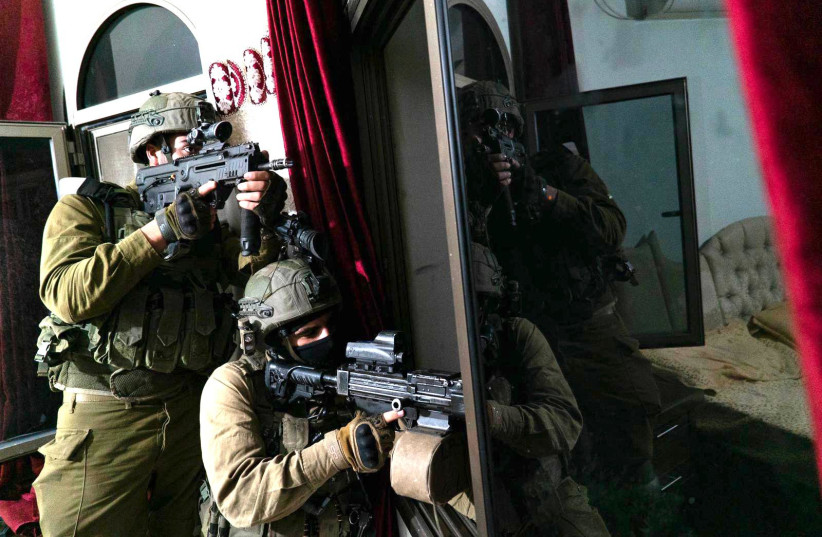A year after Operation Guardian of the Walls, Israel’s military is desperately trying to avoid being dragged into another war.
With terror attacks across the country claiming the lives of civilians and security forces, the defense establishment is scrambling to prevent the next deadly attack before it happens.
Israeli security forces have been reinforced by thousands of troops in the West Bank and along the security fence, but that hasn’t stopped terrorists from carrying out plans driven by the incitement of Hamas leader Yahya Sinwar.
With an advanced network of intelligence capabilities, security forces are not worried about not apprehending terrorists, but about stopping them before they terrorize.
The defense establishment is concerned about the ongoing incitement surrounding the Temple Mount or al Aqsa compound, worried that attackers have been older and more organized lone-wolves who have learned from past attacks how to evade Israel’s online intelligence offensive.

According to the investigation into Thursday night’s attack in Elad, one of the terrorists left behind a will saying that he was motivated by the recent unrest on the al-Aqsa Mosque compound.
The two terrorists, who were caught Sunday morning, did not belong to any terror group and had no past history of security incidents. But like other terror attacks in the past two months, they planned theirs.
The Temple Mount has been a focal point of violence for decades, and clashes between worshipers and security forces have often been the spark, most recently last May.
Sinwar has been inciting the Palestinian street against Israel, charging that Jerusalem is attempting to change the status quo of the holy site. And the youth are listening to him, leading to a significant increase in terror attacks in Israel and the West Bank.
In data released by the Shin Bet (Israel Security Agency), 190 attacks in March increased to 268 in April, with 217 in the West Bank, 42 in Jerusalem and Israel and nine from the Gaza Strip. The majority of March attacks also took place in the West Bank.
Attacks since March have claimed 19 Israeli lives and have wounded dozens more people. And each successful attack leads to copycat ones.
Despite many calls for the targeted assassination of Sinwar, the military and government officials do not recommend it. The IDF is said to have told the political echelon to continue differentiating between the West Bank and the Gaza Strip.
Taking out Sinwar, they believe, will not lead to quiet but to an escalation that will be harder to stop. The IDF has operational plans to take out Sinwar and tried but failed to assassinate Mohammed Deif, commander of the group’s military wing, during last year’s round of fighting.
The head of the IDF Southern Command, Maj.-Gen. Eliezer Toledano even told Channel 12 News last year that both Deif and Sinwar were targets.
“Mohammed Deif and Yahya Sinwar were, and remain, in Israel’s sights,” he said.
The IDF bombed Sinwar’s home during the fighting, saying it served as “terrorist infrastructure.”
Previous targeted strikes on bomb-maker Yayha Ayyash in 1996 and Hamas founder Sheikh Ahmed Yassin in 2004 did not stop suicide bombings during the Second Intifada and other attacks in years since.
Israel cannot avoid conflict at any price as that would also encourage attacks. But somehow, Sinwar and Deif must be made to feel the consequences of their continued incitement.
The Jewish state cannot allow itself to look weak vis-a-vis Hamas. Israel has to take the fight away from the home front and back into the court of the terrorists.
